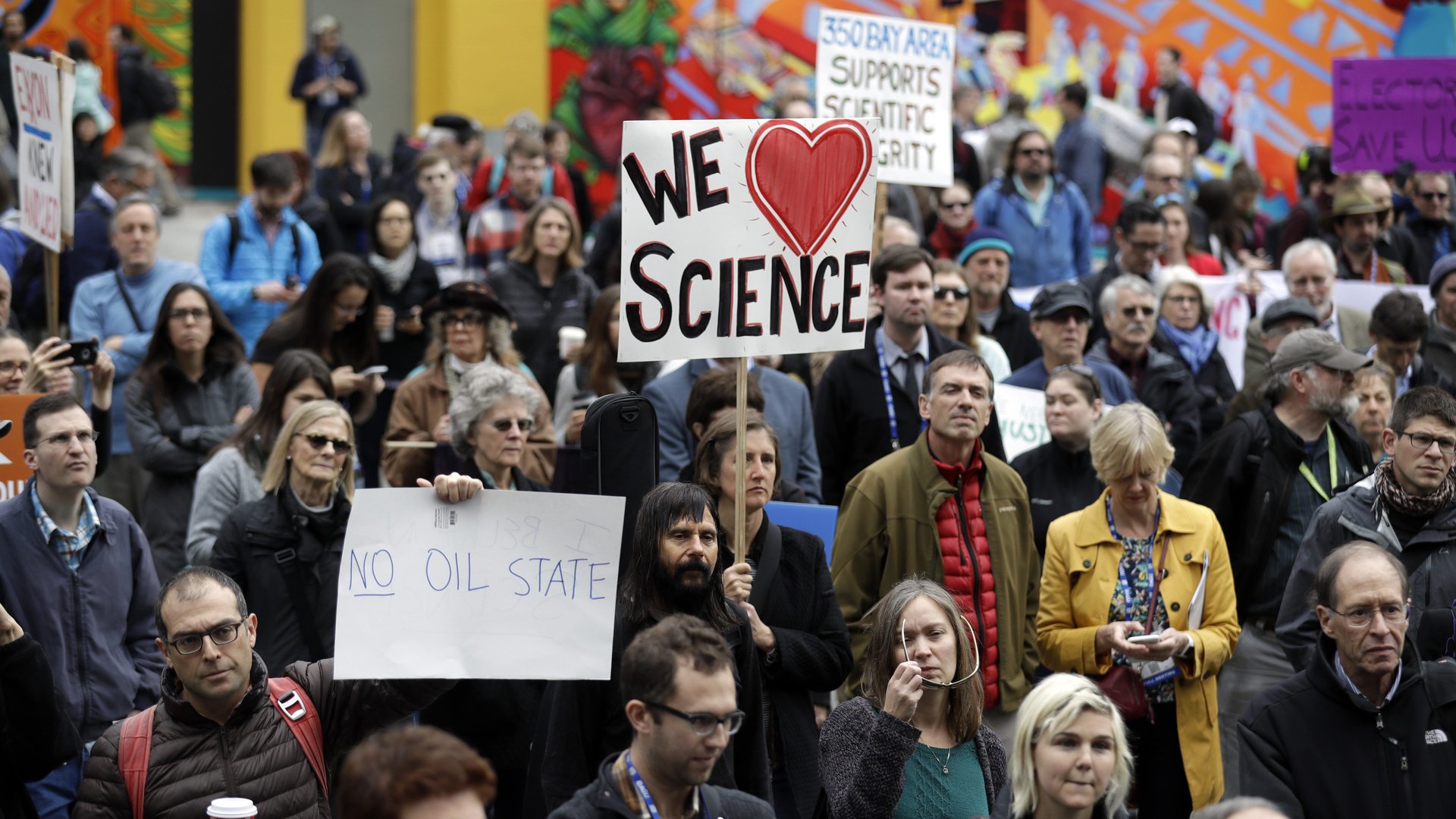A scientist is planning a US Senate bid with the campaign slogan “Liberty, Equality, Reality”
Donald Trump’s presidency has sparked a scientist rebellion in the US. Since Trump has moved into the White House, they’ve been working frantically to save government environmental data before it’s deleted, using government accounts to tweet out facts about climate change, and planning a march on Washington to oppose policies they see as anti-scientific.


Donald Trump’s presidency has sparked a scientist rebellion in the US. Since Trump has moved into the White House, they’ve been working frantically to save government environmental data before it’s deleted, using government accounts to tweet out facts about climate change, and planning a march on Washington to oppose policies they see as anti-scientific.
Among these rebels is Michael Eisen, an evolutionary biologist at the University of California, Berkeley. But he’s gone a step further. The researcher—who usually studies flies—has turned his attention to the 2018 election, when he will run for the senate seat currently held by four-term Democrat Dianne Feinstein. Eisen launched his candidacy with a simple slogan that summarizes his frustration with the current administration: “Liberty, Equality, Reality.”
In a Q&A with Science Mag, Eisen said he’s running for a US senate seat to protect “the basic and critical role of science in policymaking,” which he argues is under threat from Trump’s administration. He urged other scientists to see Congress as more than just a source of funding: “We can’t just sit on the sidelines and hope someone else will fight these fights for us. We need to do it.”
The first post up on Trump’s new White House website vowed to ditch his predecessor’s Climate Action Plan, which outlines steps for climate change mitigation, and the Waters of the US rule, designed to give the Environmental Protection Agency the ability to more effectively regulate waterways and drinking water. The rollbacks, the post said, were part of the “America First Energy Plan,” which vows to revive the US coal industry and take advantage of untapped shale, oil, and natural gas reserves.
The Trump administration has also given the green light to the controversial Dakota Access and Keystone XL pipelines, placed the EPA under a gag order to keep it from communicating about taxpayer-funded science, and announced plans to vet science coming out of the EPA before it can be released to the public.
Eisen knows his chances of winning in 2018 are slim, especially if Feinstein decides to run for a fifth term instead of retiring. But he hopes that his candidacy will bring these important issues to the forefront.
It’s likely Eisen won’t be the only scientist attempting to get into public office in the next few years. 314 Action, a political action committee set up in the aftermath of Trump’s election to get more scientists and engineers to run for elective office, has proven hugely popular.